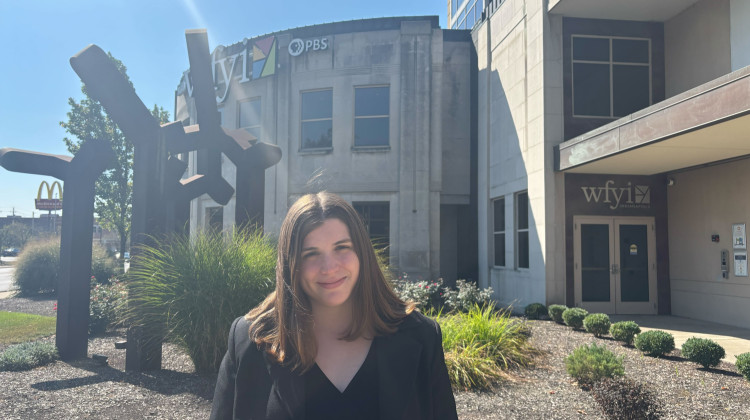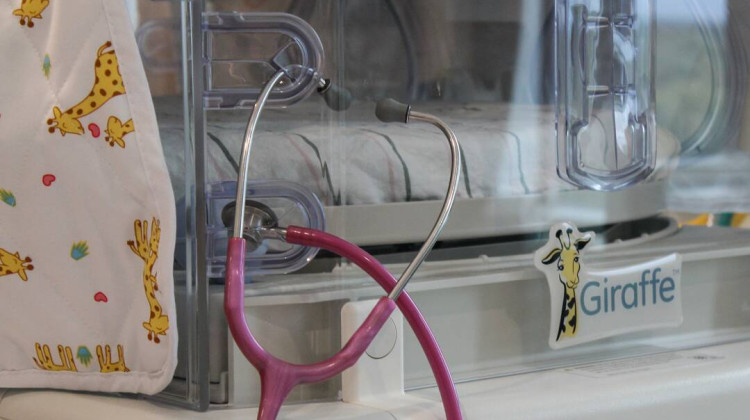An investigation into a mental health facility in Lawrence has uncovered widespread allegations of violence, abuse and neglect. Now, that facility — Options Behavioral Health Hospital — is set to close.
WFYI’s Abriana Herron spoke with Mirror Indy health reporter Mary Claire Molloy, whose reporting brought these issues to light.
This interview has been edited for style and clarity.
Abriana Herron: So what prompted you to start looking into options, behavioral health hospital?
Mary Claire Molloy: I heard from a law firm called CohenMalad who was taking on a case of a woman from Noblesville who described being held against her will at the facility, threatened when she tried to leave, and coerced into taking naked photos. Those details are in her lawsuit. And once I sat down with her, her name's Paige Dufour, we had an interview. And once that was published, the floodgates opened.
So many people reached out to me saying 'I had the same experience at Options', and it kind of unraveled from there. We started with, what else are patients and families saying? This seems to be a widespread problem and now we're hearing from the employees, and now we're looking at the parent company behind Options, which is Acadia Healthcare.
Herron: Your ongoing coverage of options has revealed troubling issues from widespread violence to serious allegations of sexual abuse. What were some of the most shocking or disturbing details you uncovered during your reporting?
Molloy: I didn't go into this thinking that there would be this type of widespread abuse, and it's sort of something that was uncovered when you dig in deeper. And it started with a nurse who said the facility allowed a convicted rapist to be there and they didn't separate him from vulnerable women.
That's what she alleged to us, and that she was asked to basically cover it up by the CEO. And starting from there, then I wanted to know, get my hands on police reports and see… is there a pattern of widespread abuse, and how is the facility responding to it?
So uncovering those numbers was really disturbing, but I also think that I've heard from people that it was good that it was brought to light, even if it was painful. That's what a lot of patients and their families have said to me.
Herron: Options is set to close in early October. However, the parent company is planning to open a new facility on the west side of Indianapolis. What do you know about this new facility?
Molloy: So I guess, just to give a little background, Acadia Healthcare is a multi-billion dollar behavioral health company that runs facilities like Options across the country, and they've been under scrutiny from the New York Times for an investigation where the Times found they were holding people against their will for insurance money. They also settled a fraud probe with the Department of Justice for $20 million recently.
So Acadia, it’s nothing new. It's just when you walk into Options, you don't know that that's an Acadia facility. It doesn't say Acadia on the door. A lot of patients may know about Acadia, but they don't know that the local facility they're walking into might have this like history or these allegations against them.
So there's a new facility Acadia is opening at Milestones Behavioral Health on Indy's west side. I don't have the full knowledge of when it opens, except that it will. And some of the patients and families I spoke with said, ‘Yes, we're happy Options is closing’, but they're basically just moving down the street with a new name and they worry that the same practices and abuse will occur there, because it's Acadia.
Herron: What do you hope happens because of this reporting that you've done?
Molloy: I hope that there's more transparency around what happens at mental health facilities. It was sort of difficult to get information sometimes. And I also hope that people aren't harmed. I hope that they can go to a facility and get the help they need and leave without feeling further traumatized.
And I hope that the stories that we told and the voices that were featured maybe help someone else feel comfortable coming forward about what happened, or feel comfortable still seeking mental health care, which can be so stigmatized.
Herron: Thank you so much. Mary Claire.
Molloy: Thank you for having me.
 DONATE
DONATE








 Support WFYI. We can't do it without you.
Support WFYI. We can't do it without you.